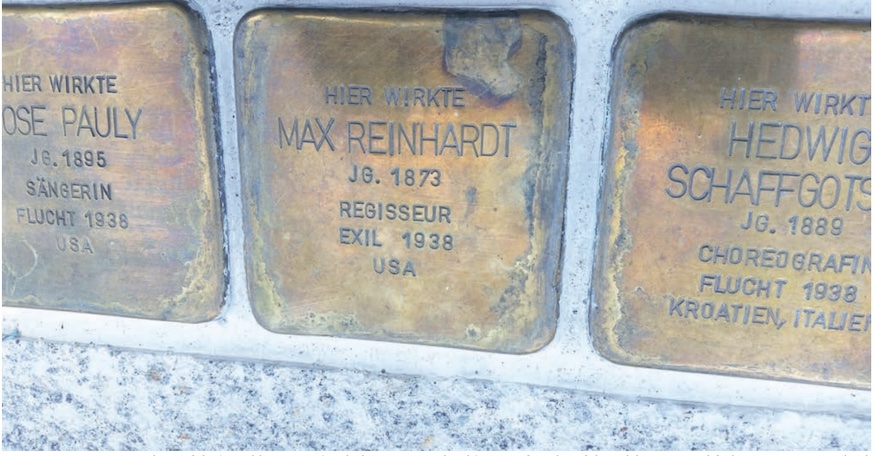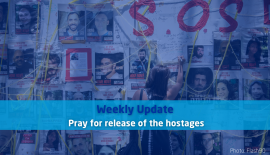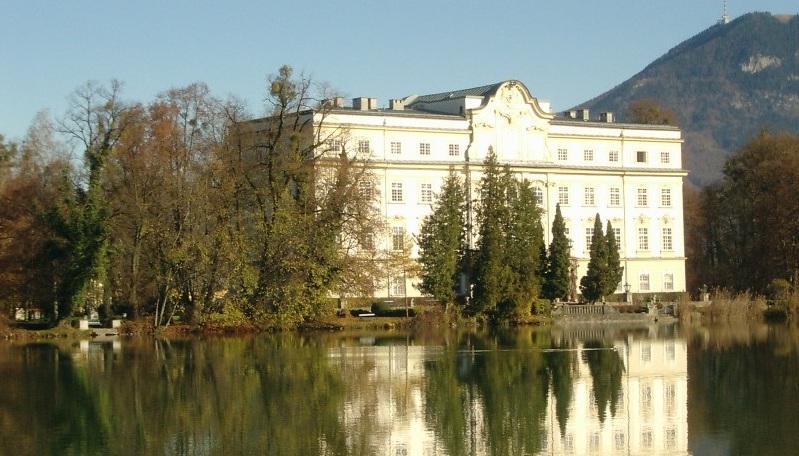100th Anniversary of the Salzburg Festival (1920-2020)
28 ‘stumbling stones’ laid in memory of artists who were deported, murdered, or fled during the Nazi Regime.
The Salzburg Festival (German: Salzburger Festspiele) is a prominent festival of music and drama established in 1920. It is held each summer (for five weeks starting in late July) in the Austrian town of Salzburg, the birthplace of Wolfgang Amadeus Mozart. One highlight is the annual performance of the play Jedermann (Everyman) by Hugo von Hofmannsthal.
“On 17 August 2020, twenty-eight brass ‘stumbling stones’ were laid in the pavement in front of the Small Festival Hall on Max-Reinhardt-Platz in Salzburg”
On 17 August 2020, twenty-eight brass ‘stumbling stones’ were laid in the pavement in front of the Small Festival Hall on Max-Reinhardt-Platz in Salzburg. Whoever goes up the steps to attend a concert will from now on pass these and will be reminded of the great artists who played a decisive role in shaping the festival from its founding year in 1920 until 1938. The artists had been expelled, deported, or banned from their profession under the Nazi Regime. These ‘stumbling stones’ recall some of the most prominent names in the history of the Salzburg Festival, like the founder Max Reinhardt and his wife Helene Thimig, star conductors such as Bruno Walter, Erich Kleiber and Arturo Toscanini, to name a few.
Since the Nazi regime immediately seized the Salzburg Festival and other cultural institutions in 1938, these artists were all either forced to flee abroad or were banned from performing. In addition, artists such as the Viennese violinist’s Alma Rosé and Julius Stwertka were deported to concentration camps and died there.
The Salzburg Festival ‘was a decidedly Jewish-Austrian bulwark against Germany, today it is an expression of the highest artistic creativity of the German people,’ was the résumé of the provincial governor and SS leader Albert Reitter – to be read in the ‘Salzburger Volksblatt’ of 31 December 1938. The eradication of this ‘Jewish-Austrian bulwark’ cost many artists their work, their home or even their lives.
“The eradication of this ‘Jewish-Austrian bulwark’ cost many artists their work, their home or even their lives”
The Stumbling Stones as a Memorial
On the stones are engraved the names of the artists, the year of birth, their profession, as well as the year and the destination of their deportation or escape. In between, there are also stones without brass plates. They are meant to remind us of the many artists, e.g. musicians of the orchestra, who are not included in this selection.
The Stumbling Stones have been given a prominent place in Salzburg. “It was of great importance for us to place the stones here prominently and visibly on Max- Reinhardt-Platz. The Festival has always seen itself as an ambassador for peace and reconciliation,” commented Festival President Helga Rabl-Stadler.
The memorial stones were funded by the ‘Association of Friends of the Salzburg Festival.’
“A person is only forgotten when his/her name is forgotten,” it says in the Talmud.
The historian Kerschbaumer, who researched the biographies of the artists, emphasises the importance of commemoration 75 years after the end of the Nazi regime. For too long, the fate of the artists has been ignored: “What was expected of a displaced artist like Margarete Wallmann after liberation? Glamour and silence! No one was to know anything about the death of her parents in the Bergen-Belsen concentration camp. Decades later, a brass covered memorial stone at the entrance of the Festival Hall now commemorates the life of this artist”.
Max Reinhardt
Max Goldmann, who chose the stage name Max Reinhardt, was born in 1873 in the town of Baden near Vienna. He was the oldest of seven children of the Jewish couple Rosa and Wilhelm Goldmann.
Max already made his debut as an actor in Vienna in 1890, at the tender age of 17. When he was 19 years old, he acted for the first time in Salzburg. In this city, where he founded the Salzburg Festival many years later, his actual stage career began. With the experience he had gained in Salzburg, Max Reinhardt went to Berlin.
After a quarter of a century, towards the end of the First World War and during the collapse of the Austro-Hungarian monarchy in 1918, Max Reinhardt returned to Austria and acquired Castle Leopoldskron in Salzburg, which once had been the summer residence of the Salzburg prince bishops. Without Reinhardt’s Castle Leopoldskron the Salzburg Festival would probably never have been founded. Reinhard enlivened the castle with theatre productions, the audience moving from one room to the next, and the magnificent rooms becoming the stage. Castle Leopoldskron became a meeting place for theatre producers, writers, composers, and actors from all over Europe, as well as leaders from politics, business, and society.
The Salzburg Festival was officially born on 22 August 1920, when the play ‘Jedermann’ (Everyman) was performed on the square in front of the Salzburg Cathedral, staged by Max Reinhardt and with Alexander Moissi in the leading role. ‘Everyman’ (The play of the rich man’s death) is a play by the Austrian playwright Hugo von Hofmannsthal. It is based on several medieval mystery plays, including the late 15th-century English morality play ‘Everyman’.
From 1938 until 1946 the play was banned. Since 1946, the play has been performed at the Salzburg Festival every year and has become one of the highlights of the festival.
“In 1930, the city of Salzburg named the square in front of the old Festival hall (Festspielhaus) after its founder Max Reinhardt, despite furious protests from anti-Semitic crowds”
In 1930, the year of the festival’s 10th anniversary, the city of Salzburg named the square in front of the old Festival hall (Festspielhaus) after its founder Max Reinhardt, despite furious protests from anti-Semitic crowds. Envy and hatred as well as great admiration, accompanied the life of this great Austrian stage and film director, artistic director, theatre producer and impresario.
Reinhardt was closely connected to Salzburg from 1918 to the 1930s. Adolf Hitler’s seizure of power in the German Reich in 1933 and Austria’s ‘Anschluss’ (annexation) to Nazi Germany in 1938 caused Reinhardt to lose his cultural home and his property. By 1937, he had already emigrated to the USA, where he died in 1943.
His grave is located in Westchester Hills Cemetery in New York, where famous artists such as George Gershwin have their gravesites.







